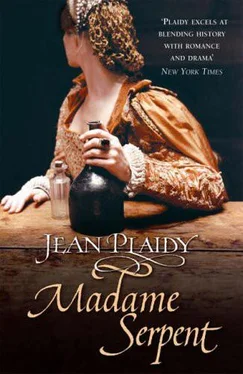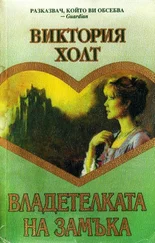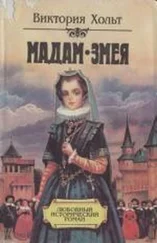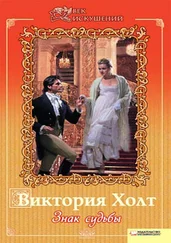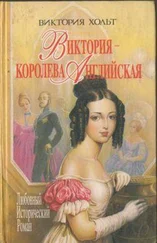Виктория Холт - Madame Serpent
Здесь есть возможность читать онлайн «Виктория Холт - Madame Serpent» весь текст электронной книги совершенно бесплатно (целиком полную версию без сокращений). В некоторых случаях можно слушать аудио, скачать через торрент в формате fb2 и присутствует краткое содержание. Жанр: Исторические любовные романы, на английском языке. Описание произведения, (предисловие) а так же отзывы посетителей доступны на портале библиотеки ЛибКат.
- Название:Madame Serpent
- Автор:
- Жанр:
- Год:неизвестен
- ISBN:нет данных
- Рейтинг книги:5 / 5. Голосов: 1
-
Избранное:Добавить в избранное
- Отзывы:
-
Ваша оценка:
- 100
- 1
- 2
- 3
- 4
- 5
Madame Serpent: краткое содержание, описание и аннотация
Предлагаем к чтению аннотацию, описание, краткое содержание или предисловие (зависит от того, что написал сам автор книги «Madame Serpent»). Если вы не нашли необходимую информацию о книге — напишите в комментариях, мы постараемся отыскать её.
Madame Serpent — читать онлайн бесплатно полную книгу (весь текст) целиком
Ниже представлен текст книги, разбитый по страницам. Система сохранения места последней прочитанной страницы, позволяет с удобством читать онлайн бесплатно книгу «Madame Serpent», без необходимости каждый раз заново искать на чём Вы остановились. Поставьте закладку, и сможете в любой момент перейти на страницу, на которой закончили чтение.
Интервал:
Закладка:
‘It shall be my dearest possession,’ he had told her earnestly.
Everything she did was exalted; nothing was ordinary. Even when she discussed his clothes and told him what to wear, how to bow, how to greet men and women, she did it with such grace and charm that it did not seem like a lesson. One thing she could not teach him, and that was to smile for others; he kept his smiles for her alone.
When he heard that he was to be married to an Italian girl, he was much alarmed; he went to Diane at once and told her of it.
Then was she her most sweetly sympathetic. She held his hands just as though he were in truth her own son; and she told him how she, a little girl of fifteen. about the age that he was now, had been given into marriage with an old man. She told him of her own fears.
‘But Henry, I quickly learned that there was nothing to fear. He was an old man; and this Italian is your own age. It is not for you to be afraid of a little girl.’
‘No, Diane,’ he said. ‘I should not be afraid, should I? But I wish I need not marry. I have no wish to marry.’
‘But my dear little friend, those of high birth must marry.’
‘I would have wished to choose a bride then,’ he lifted his eyes to her face.
‘But she whom I would choose would be too far above me.’
Diane was startled. What had happened to the boy?
She laughed lightly. ‘Oh come, my lord, who is too exalted for the Duke of Orléans?’
He was about to stammer something when she turned the subject quickly.
It was well, she thought that he was about to be married. She hoped the little Italian girl would be pretty enough to charm him.
It was with great delight that Henry heard Diane was to be of the party who would accompany him down to Marseilles where he was to meet and marry the little Medici.
CATERINA THE BRIDE
IN THE valley lay the noblest city in all Europe. Its dot and spires that glittered in the smokeless air seemed to challenge the quiet hills which stopped only at its gates. The river gleamed silvery grey in the distance as it twisted west-wards through the valley of the Arno, through Tuscany to Pisa and to the sea. The Country was fertile, rich with its vineyards and plantations of olives.
The town was richer; its bank and wool merchants had made it prosperous, but it possessed a greater richness than they could give, to share with the world.
Leonardo da Vinci and Botticelli, Dante and Donatello had beautified it; and Michelangelo, still a comparatively young man, was on this summer’s day, at work within its walls. Its palaces and churches were storehouses of treasures; but in the city there was one possession which was more highly valued than art and learning. This was freedom. And the townsfolk looked to their ruling family to remember Florentine pride and Florentine independence.
The sun burned hotly in the Via Larga, scorching the thick stone walls of the Medici Palace. The first of the renaissance palaces of Florence, it looked strong enough to withstand attack, for it was not only a palace, but a fortress; constructed to face the glare of an Italian sun, delightful in the contrast of light and shadow it presented, it was arresting, with its grim almost prison-like tower structure and the decorative designs of the upper storeys. It was one of the most impressive buildings in a city of beauty.
In one of the upper rooms of this palace, little Caterina sat at her lessons.
Her head ached, for her eyes were tired, but she must give no sign of this; she must never mention phys disability; she must never forget her dignity; she must, in fact, always remember that she was a member of the ruling house of Florence.
Cardinal Passerini, who, by orders of the Pope, ruled the city under his master and at the same time supervised her learning, and her Aunt Clarissa, who supervised her manners, together with the Holy Father himself, who she saw less frequently, all impressed this upon her. She was important, because on her their hopes were fixed.
‘Do not forget, Caterina Maria Romola de’ Medici,’ Clarissa Strozzi would say― for Aunt Clarissa always used her full names to stress the need of preserving dignity― ‘do not forget that you are a daughter of the house of Medici. It is for you to show dignity, courage, and learning always― passion and folly never.’
When these lessons were done, there would be more lessons to follow― deportment, dancing, riding, and conversation with the Cardinal, Aunt Clarissa, and perhaps Filippo Strozzi, Aunt Clarissa’s banker husband. Besides the study of languages, she must learn the history of her own family and that of the ruling houses of other countries. Aunt Clarissa insisted that she know each glorious incident in the life of her great-grandfather, Lorenzo the Magnificent; he was Aunt Clarissa’s hero and she often compared him with Guilio de’ Medici, who now, as Pope Clement VII, was head of the family. Caterina had been shocked to hear the Holy Father spoken of with disrespect, but the greatest lesson she had had to learn was that of hiding her feelings; so Caterina listened and showed no sign of her surprise.
Now she pushed her long fair hair back from her thin little face, and as she was about to return to her books she heard a scratching at the door, and, forgetting her dignity for a moment, she leaped up and let in Guido, a spaniel with adoring brown eyes. She had two of them― Fedo and Guido― and only these two living beings knew her as a little girl who sometimes liked to romp and laugh more loudly than would have been seemly if any but they had heard it.
Guido was frightened. He cowered against her and licked her hand. He had the air of a dog who has escaped some terrible fate, but who knows his escape to be temporary. She guessed at once that the pursuer was Alessandro― the boy who called himself her brother and whom she called The Moor. He loved nothing better than to maltreat dogs and young serving boys and girls, any of whom he could torture without bringing trouble on himself. One day he would, she guessed, try to have similar fun with grown-up people.
She put a hand down to the dog and fondled his silky coat. She would have liked to have knelt on the floor and flung her arms about him. But the idea of Caterina of the house of Medici stooping to caress a dog in a room where she might be discovered must be immediately dismissed.
She had been right. It was Alessandro who had been chasing the dog, for he now pushed open the door and came into the room. He shut the door and leaned against it, looking at Caterina while the dog tried to hide behind his mistress’
feet; and Caterina, giving no sign of the violent beating of her heart, lifted her eyes to look at Alessandro.
They called him a Medici! Why, why, Caterina asked herself passionately, had her noble father gone about the world, planting his seed in such ignoble ground! How could he have loved the low Barbary slave who must have been Alessandro’s mother? But evidently he had, if only for a short while, since Alessandro was here in the palace with her― her half-brother. The Pope insisted that he should live here, although Aunt Clarissa would have gladly turned him into the streets. A bastard, by good fortune; for what if he had been her legitimate brother? But no! Noble blood could never produce that low brow with the dark hair growing down almost to the eyebrows, that short, broad nose, that vicious mouth, those lecherous protruding eyes. Caterina would have been terrified Alessandro if she had not known herself safe from his vicious ways. He dared not hurt her; but he hated her all the same.
She was the legitimate daughter; he was the illegitimate son; but the Holy Father, loving the boy though he did, would not allow harm to come, through Alessandro, to the little girl who was hope of his house. Alessandro came slowly into the room. He was fourteen at this time― eight years older than Caterina, and already showing many signs of the man he would become.
Читать дальшеИнтервал:
Закладка:
Похожие книги на «Madame Serpent»
Представляем Вашему вниманию похожие книги на «Madame Serpent» списком для выбора. Мы отобрали схожую по названию и смыслу литературу в надежде предоставить читателям больше вариантов отыскать новые, интересные, ещё непрочитанные произведения.
Обсуждение, отзывы о книге «Madame Serpent» и просто собственные мнения читателей. Оставьте ваши комментарии, напишите, что Вы думаете о произведении, его смысле или главных героях. Укажите что конкретно понравилось, а что нет, и почему Вы так считаете.
